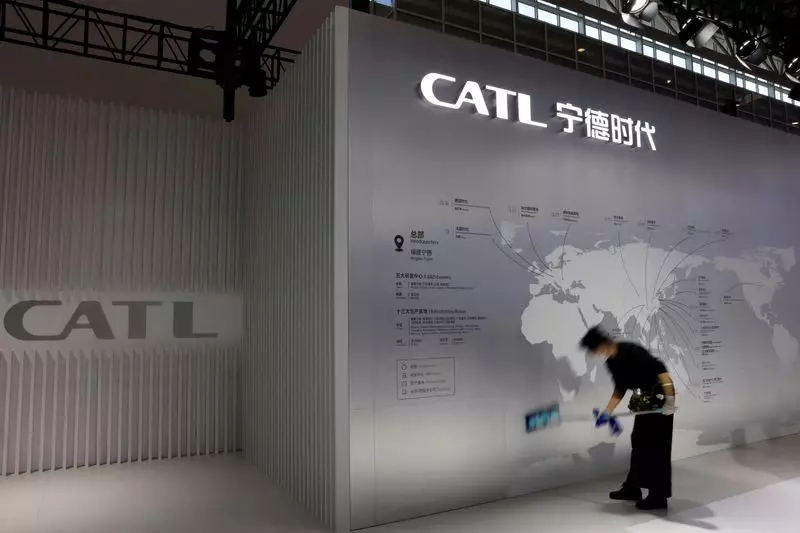The U.S. Defense Department’s recent decision to add major Chinese technology firms to a designated list of companies identified as collaborators with the Chinese military represents a notable escalation in tensions between the United States and China. This list, commonly referred to under U.S. law as the “Section 1260H list,” not only covers companies like Tencent Holdings and CATL but also highlights America’s increasing concern regarding national security threats posed by foreign entities. The inclusion of these firms sheds light on the broader geopolitical landscape where technology intersects with defense and security matters.
The addition of companies such as Tencent, a dominant force in gaming and social media, alongside CATL, a leader in battery manufacturing, raises critical questions regarding their operations and affiliations. Tencent, which has a strong presence through its ownership of the ubiquitous messaging platform WeChat, experienced a significant downturn in its stock prices following the announcement, illustrating the immediate financial repercussions that occur from such designations. CATL, known for driving electric vehicle battery innovations, responded similarly, emphasizing their non-involvement in military activities. These reactions underscore how reputational damage can occur quickly in the wake of U.S. government actions, regardless of the intentions behind such listings.
The implications of the Chinese Military Companies (CMC) list extend beyond mere acknowledgment; they serve as a warning for U.S. investors and companies regarding the potential risks associated with engaging with these targeted firms. As Craig Singleton from the Foundation for Defense of Democracies noted, the inclusion of these companies indicates a significant tightening of regulations and scrutiny over technology firms operating within China’s thriving commercial sector. This sentiment is mirrored by analysts like those at Jefferies, who suggest that this list may influence decisions across various U.S. government departments moving forward, heightening the stakes for American companies with financial interests in China.
The action against companies like CATL didn’t arise in isolation; rather, it reflects a broader political pressure from U.S. lawmakers who have long been aware of the potential risks these Chinese firms pose. As the U.S. continues to navigate its relations with China, these legislative pressures often translate into concrete actions by the Defense Department, underpinning a strategic stance that prioritizes national security over economic ties. This dynamic places American companies in a challenging position, particularly those looking to invest or partner with firms that have now been designated as ties to military endeavors in China.
The U.S.-China relationship is on a precipice, characterized by mutual distrust and competitive posturing around technology and military capabilities. As American companies explore partnerships in China to gain technological advantages, they are faced with increasingly stringent regulations that serve to fortify the U.S.’s competitive landscape. The decision to include several companies on the CMC list doesn’t just impact those companies; it creates ripples throughout the financial markets and contributes to an environment of wariness among U.S. firms contemplating investments in China.
As the geopolitical landscape continues to evolve, it remains to be seen how firms will adjust their strategies in response to these changing circumstances. While current designations create a semblance of delineation between military and commercial entities, the reality is often murkier, with technology sectors relied upon for both commercial prosperity and defense innovation. The Pentagon’s actions have initiated a dialogue on the relationship between technology and national security that is likely to intensify in the coming years.
The latest developments signify an important chapter in U.S.-China relations, where economic pursuits are critically scrutinized through the lens of defense. The repercussions of this new designation list highlight an urgent call for American firms to re-evaluate their engagement with the accelerating landscape of Chinese technology development. As the world watches closely, the interactions between these two economic giants will undoubtedly have far-reaching implications across global markets, innovation, and security frameworks.

